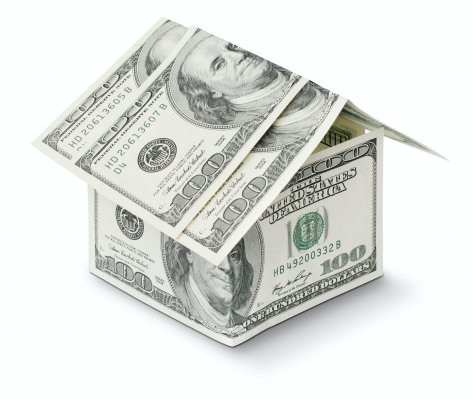There are many things to consider when deciding to buy or rent a house. The following will help you with some key factors to consider as you make your decision. We look at the pros and cons of renting and getting a mortgage as they have points to factor in.
The choice you make should not be taken lightly as, for many, this is the most significant purchase of their life. There is no need to rush into either action, so take your time, consider all the options, and then decide.
First things first, let's get down to the what we are talking about, and that is what is a mortgage?
A mortgage is a loan that is used to purchase a home. The home acts as collateral for the loan, which means that if you default on the loan, the bank can foreclose on your home. Mortgages are typically repaid over a period of 15 or 30 years, and the interest rate is usually fixed, which means it does not change over the life of the loan.
Mortgages are one way to finance a home purchase but they are not the only option. You could also pay cash for your home or take out a personal loan or line of credit. Each option has pros and cons, and you should consult a financial advisor to determine which is correct.
One thing to keep in mind is the actual rate of your mortgage. There are several different options in Canada, such as variable or fixed rates. The first, the variable rate, will generally be lower when compared to the same rate of the time that is fixed as set at. However, they track the prime lending rate that the Bank of Canada charges. Because that actual rate can change, so can your variable mortgage rate, which can go up or down. This can cause issues if the lending rate rises, as it is right now, as it will increase your monthly costs.
If you choose the fixed rate available in the USA, you have a set rate for a set duration. Generally speaking, in Canada, the rate is locked in for a minimum of 1 year and usually maxes out at 5 years. While in the USA, there are options to set the rate for the entire duration of the mortgage.
While each setup has pros and cons, it is very important to consider the impact a changing rate might have on you. Fixed rates are best for you if you like stability and the same price for as long as possible. If you think the rates will go down or prefer to live a bit riskier regarding your tolerance for variability, you might look at a variable rate for your choice.
There are many factors to consider when deciding whether to rent or buy a home. A significant factor is whether you plan to stay in the same area for an extended period of time. If you think you may move soon, it may make more sense to rent since there is typically less of a financial commitment.If not, renting may be the better option for you. Also, if you are unsure how long you will stay in an area, you might not want to buy to avoid fees. These fees can occur when you sell the house; you will likely not get back what you paid for it and will have to pay real estate fees and early termination fees from your lenders.
What can you afford?
Another factor to think about is your current financial situation. Can you afford a down payment and monthly mortgage payments? Renting is usually going to be the cheaper option as in theory you are paying a bit less because you aren't getting anything as far as asset acquistion. This is similar to leasing a car vs. financing it, as leases are usually cheaper with a higher buyout than a financed car that has a lower buyout. At the end of the term the financed car owner usually pays less overall.
Of course, there are pros and cons to both renting and buying. When you own a home, you have the freedom to make changes and renovations as you please, and you also build equity over time as your home appreciates. On the other hand, renting gives you the flexibility to move more quickly and doesn't require as many up-front costs.
Upkeep
Last, consider what kind of maintenance and repairs are required for owning a home. Renting is often viewed as renting your freedom from upkeep bills. This is true to an aspect, and you will not have to keep up with the regular maintenance of a house as that is the landlord's responsibility. However, some parts are positive to owning a place.
The debate over buying or renting a home has been around for many years. Both choices have pros and cons, and ultimately it comes down to what is best for the individual.
Renting has traditionally been seen as the more affordable option since you are not responsible for maintenance or repairs on the property ( as mentioned above). You also have the flexibility to move if your circumstances change. However, rental prices have been rising recently, making it harder to save for a deposit on a home.
Buying a home gives you the security of knowing you will have a place to live for as long as you want. It can also be a good investment, as property values typically increase over time. However, buying a home is a big financial commitment, and you will be responsible for upkeep and repairs.
There's no simple answer to whether it's better to buy or rent a home. It depends on various factors, including your financial situation, lifestyle, and long-term plans. But we do suggest that you think long and hard about your current financial situation, how can that change in the future, how long could you be in that area, and other huge life choices before you purchase a place to live. It is not a decision to take lightly, as it can have huge financial implications on the rest of your life.
If you're looking for a place to live that you can call your own and have the financial resources to make a purchase, then buying a home may be the right choice. On the other hand, renting may be a better option if you're not ready to commit to a long-term mortgage or you're looking for more flexibility in your housing situation.
Ultimately, the best decision for you will depend on your specific circumstances. If you're unsure which route is correct for you, it's never a bad idea to speak with a financial advisor to get professional guidance. Here is a great video that goes over the different aspects a bit more, so take a look if you want some more information:





